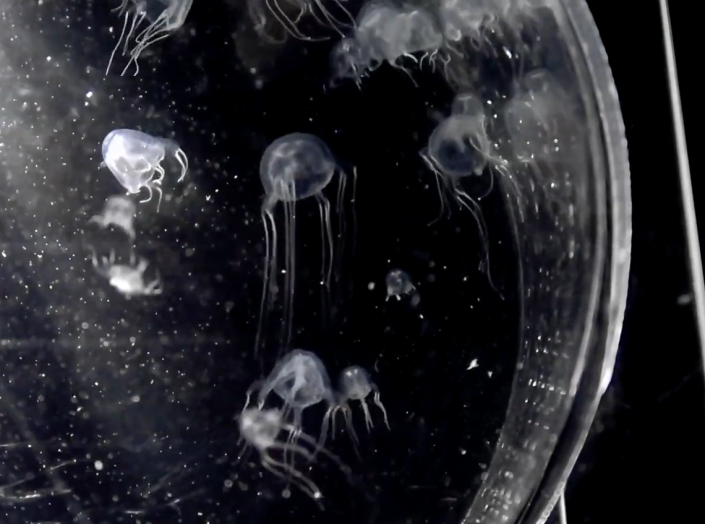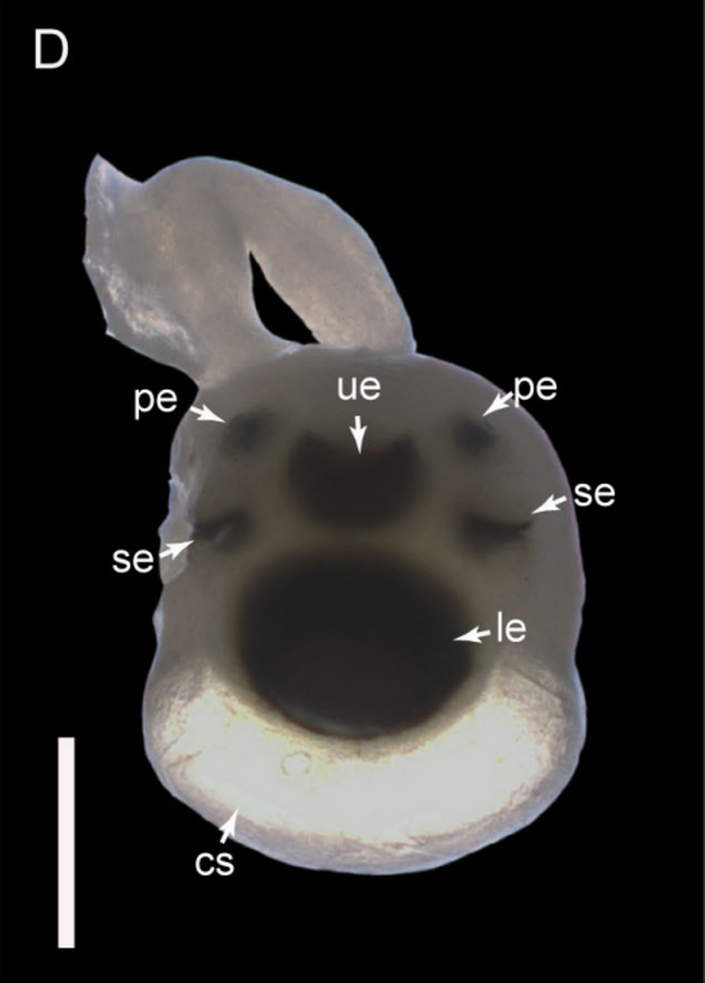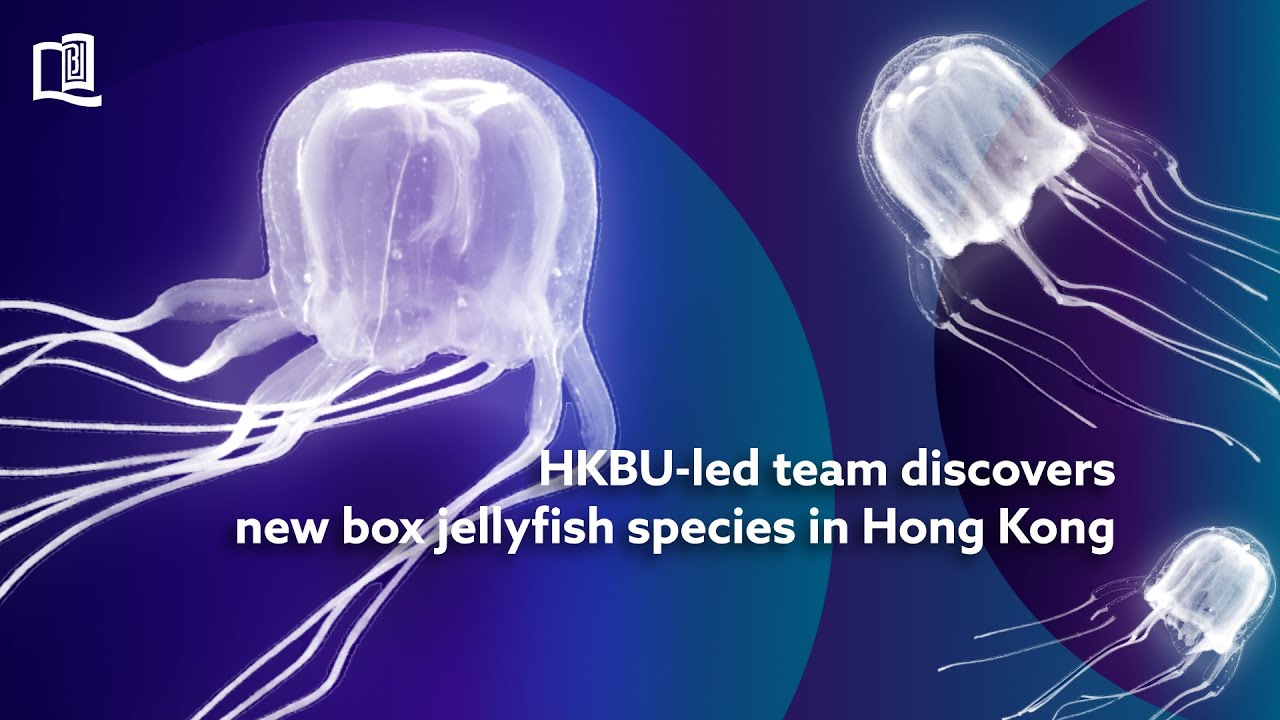Hong Kong Pond Unveils Cube-Shaped Creature With 24 Eyes, Reveals Study
A team of scientists from Hong Kong Baptist University made a groundbreaking discovery after scooping up water from a brownish-green pond in Hong Kong's Mai Po Nature Reserve. The Hong Kong pond unveils cube-shaped creature with 24 eyes, which turned out to be a new species of box jellyfish, according to a study published in Zoological Studies.
Author:Xander OddityReviewer:Raven NoirApr 20, 2023145 Shares2.4K Views

A team of scientists from Hong Kong Baptist University made a groundbreaking discovery after scooping up water from a brownish-green pond in Hong Kong's Mai Po Nature Reserve. The Hong Kong pond unveils cube-shaped creature with 24 eyes, which turned out to be a new species of box jellyfish, according to a study published in Zoological Studies.
Hong Kong Pond Unveils Cube-Shaped Creature With 24 Eyes
The scientists found the creature hiding in the brackish water of shrimp ponds, and they returned three summers in a row and kept finding more of them. The jellyfish, measuring less than an inch long, has a see-through body with a slight whitish tinge, and has three tentacles extending from each corner of its body.
Box jellyfish are named for their "cube-shaped" bodies, and this group of jellyfish contains some of the most venomous marine animals in the world.
The new species, called Tripedalia maipoensis, has 24 eyes arranged in sets of six, and "pedal-shaped structures" at the base of its tentacles that act like boat paddles. These paddles allow box jellyfish to swim faster than other types of jellyfish.

Researchers identified Tripedalia maipoensis jellyfish as a new species because it was genetically and physically distinct from other box jellyfish. They named the animal after the Mai Po area where it was discovered.
This discovery highlights the rich diversity of marine life in Hong Kong and even the whole of China, according to Qiu Jianwen, the research team leader.
The Mai Po Nature Reserve is in northern Hong Kong, which is a special administrative region of China located on the southern edge of the country. The discovery of the Tripedalia maipoensis jellyfish is significant because it is the first box jellyfish species to be discovered in Chinese waters.

HKBU discovers new species of jellyfish in Hong Kong
The scientists noted that the Mai Po area is relatively well-studied, yet the discovery of the new species highlights how much more there is to learn about marine life in the region. This discovery could potentially lead to a better understanding of marine ecosystems and the ecological importance of jellyfish.
Box jellyfish are not only important to the marine ecosystem, but they also have medical and pharmaceutical significance. Box jellyfish venom has been studied for its potential to treat conditions such as heart disease and cancer.
The discovery of Tripedalia maipoensis could lead to further research into the venom of box jellyfish and its potential medical applications.
Conclusion
In conclusion, the discovery of the new species of box jellyfish in Hong Kong's Mai Po Nature Reserve is a significant breakthrough that highlights the rich diversity of marine life in the region.
The discovery could potentially lead to a better understanding of marine ecosystems and the medical and pharmaceutical significance of box jellyfish venom. It also serves as a reminder that there is still so much to discoverabout our planet's oceans and the creatures that inhabit them.

Xander Oddity
Author
Xander Oddity, an eccentric and intrepid news reporter, is a master of unearthing the strange and bizarre. With an insatiable curiosity for the unconventional, Xander ventures into the depths of the unknown, fearlessly pursuing stories that defy conventional explanation. Armed with a vast reservoir of knowledge and experience in the realm of conspiracies, Xander is a seasoned investigator of the extraordinary.
Throughout his illustrious career, Xander has built a reputation for delving into the shadows of secrecy and unraveling the enigmatic. With an unyielding determination and an unwavering belief in the power of the bizarre, Xander strives to shed light on the unexplained and challenge the boundaries of conventional wisdom. In his pursuit of the truth, Xander continues to inspire others to question the world around them and embrace the unexpected.

Raven Noir
Reviewer
Raven Noir is a captivating and enigmatic news reporter who unravels mysteries with a relentless pursuit of truth. Possessing an insatiable curiosity and an astute mind, Raven delves into the depths of complex stories, unearthing secrets that lie beneath the surface. With a masterful grasp of deduction and observation, Raven stands as a beacon of fearless investigation.
In the realm of journalism, Raven is known for his enigmatic presence, drawing people in with an aura of intrigue. Driven by an unwavering passion for unveiling the truth, Raven Noir continues to shed light on the darkest corners of society. Through captivating storytelling and unwavering determination, he challenges conventions and uncovers enigmatic secrets that lie just beyond the surface.
Latest Articles
Popular Articles